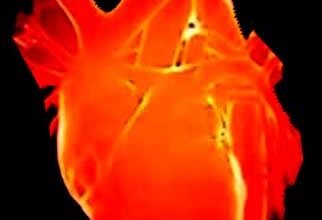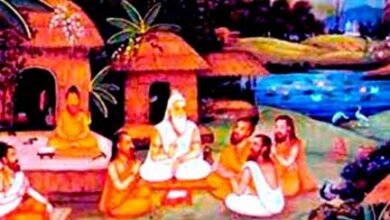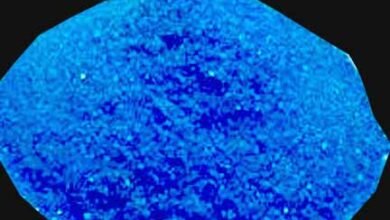
वनस्पति विज्ञान से संबंधित-106.
|
1. What name is the father of botany known? = Theophrastus. 2. The word botany is derived from which language word? = Greek. 3. What is studied in psychology? = Algae. 4. Dendrology is related to? = Study of Shrubs. 5. The study of flowers is called? = Anthology. 6. The branch of science related to plant culture is called? = Horticulture. 7. What is studied in spermology? = Seed. 8. What is studied in Agastology? = Grasses. 9. What is studied in pedology? = Land (ground). 10. The study of fruits is called? = Pomology. 11. The science that gives names to plants is called? = Taxonomy. 12. Who is called the father of taxonomy? = Linnaeus. 13. The branch of botany under which fungi are studied is called? = Mycology. 14. Who is the patron of the Davinam nomenclature? = Linnaeus. 15. Which reaction in plants oxygen reaches the cells from the external environment? = Diffusion. 16. What is called a photosynthetic organ? = Leaf. 17. The exchange of gases in plants live? = Stoma. 18. Plants that produce seeds but do not produce flowers are called? = Angiosperms. 19. Which process is excess water taken out in plants? = Transpiration. 20. What does cow dung come under? = Dead. 21. What are the plants that grow in the shade called? = Syokites. 22. Iodine is obtained from which algae? = Laminaria. 23. Which does not contain enzymes? = Virus. 24. What is the causative element of mosaic disease in potatoes? = Virus. 25. The red color of the Red Sea is due to the presence of? = Algae. 26. Kelp is obtained from? = Seaweeds 27. What is the cell wall of algae made up of? = Cellulose. 28. What is Sabudana made from? = Cycas. 29. Which class of plant seeds are formed, but the seeds remain naked on the plant? = Gymnosperms. 30. What did the nature of seeds originate? = Pteridophytes. ======== ============ =========== 1. वनस्पति-विज्ञान के जनक किस नाम से जाने जाते हैं? = थियोफ्रेस्ट्स. 2. बॉटनी शब्द की उत्पत्ति किस भाषा के शब्द से हुई है? = ग्रीक. 3. फाइकोलॉजी में किसका अध्ययन किया जाता है? = शैवाल. 4. डेण्ड्रोलॉजी का संबंध है? = झाड़ियों के अध्ययन. 5. पुष्पों का अध्ययन कहलाता है? = एन्थोलॉजी. 6. वनस्पति संवर्धन से संबन्धित विज्ञान की शाखा को कहते हैं? = हॉट्रीकल्चर. 7. स्पर्मोलॉजी में किसका अध्ययन किया जाता है? = बीज. 8. एग्रेस्टोलॉजी में किसका अध्ययन किया जाता है? = घासों. 9. पीडोलॉजी में किसका अध्ययन किया जाता है? = भूमि (जमीन). 10. फलों का अध्ययन कहलाता है? = पोमोलॉजी. 11. पौधों को नाम देने वाले विज्ञान कहलाता है? = वर्गिकी. 12. किसे वर्गिकी का पितामह कहा जाता है? = लीनियस. 13. वनस्पति विज्ञान की वह शाखा जिसके अन्तर्गत कवकों का अध्ययन किया जाता है उसे कहते है? = माइकोलॉजी. 14. दविनाम नाम पद्धति के प्रति पालक हैं? = लीनियस. 15. किस अभिक्रिया द्वारा पौधों में ऑक्सीजन बाहरी वातावरण से कोशिकाओं में पहुँचता है? = विसरण. 16. किसे प्रकाशसंश्लेषी अंग कहते हैं? = पत्ती. 17. पौधों में गैसों के आदान-प्रदान के लिए रहते हैं? = रंध्र. 18. जिन पौधों पर बीज बनते हैं किन्तु पुष्प नहीं लगते क्या कहलाते हैं? = अनावृत बीजी. 19. पौधों में आवश्यकता से अधिक जल किस प्रक्रिया द्वारा बाहर निकाले जाते हैं? = वाष्पोत्सजर्न. 20. गोबरछता किसके अंतर्गत आता है? = मृगजीवी. 21. छाया में पनपने वाले पौधों को क्या कहते हैं? = सियोकाइट्स. 22. किस शैवाल से आयोडीन प्राप्त होती है? = लैमिनेरिया 23. किसमें एन्जाइम्स नहीं होते हैं? = विषाणु 24. आलू में मोजैक रोग का कारक तत्व कौन होता है? = विषाणु 25. लाल सागर का लाल रंग किसकी उपस्थिति के कारण होता है? = शैवाल. 26. केल्प प्राप्त होता है? = समुद्री शैवालों 27. शैवालों की कोशिका भित्ति किसकी बनी होती है? = सेल्यूलोज 28. साबूदाना किससे बनाया जाता है? = साइकस. 29. किस वर्ग के पौधों में बीज बनते हैं, परन्तु बीज नग्न रूप में पौधे पर लगे रहते है? = जिम्नोस्पर्म. 30. बीजों की प्रकृति किसमें उत्पन्न हुई? = टेरिडोफाइट्स.
|





